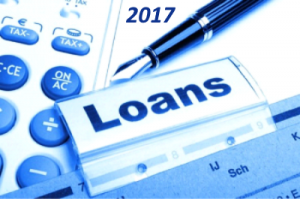You’ve decided to buy a new car, and you know how much you can afford for monthly payments. You’ve seen the brand new Dodge Charger and the sign that says Financing Available. As you sit at your computer, you’re trying to figure out whether it makes sense to go with the special zero interest for in-house financing or to get a bank loan.
Or maybe you’re shopping for a home loan rather than a car loan. You’re ready to take the next step into adulthood and become a homeowner. Do you apply for an FHA loan or go with a traditional loan? Can you meet the requirements? Before applying for a loan, whether it’s a personal loan, an auto loan or a mortgage, you need to know what’s happening. Are rates going up or down? Are there any changes in regulations or how you can qualify? When you can get answers to these and other questions, you can decide on which loan products are best for your needs.
 Know the News
Know the News
The Federal Housing Administration announced that it will be increasing its limit on loans for 2017 to accommodate the rising prices in homes. The limit increases to $275,665 up from $271,050. The ceiling in areas with higher costs will be $636,150 from $625,500. Loan limits for the FHA are determined by median home prices set by each county.
This is the first increase in a decade, which is hoped to help boost the number of mortgages given out for the year. It means buyers will be able to apply for more funds to help them find their perfect home.
With auto loans, bankruptcies are down, which means more lenient standards for approval. So it’s easier to get approved for a loan for a new or preowned vehicle. When you know the changes taking place for a loan product, you are more likely to be approved if you only apply for those you know you are qualified for.
Watch Interest Rates
Interest rates impact how much you will pay for your loan, so it’s important to know what to expect for 2017. Of course, predictions can only go so far, but experts review history, current trends, and expectations for the future to come up with their predictions so they do carry a lot of weight with people who are planning to borrow money as well as those who are investing.
The Federal Funds Rate is the biggest influencer of interest rates for borrowers. A small increase in December signaled an end to the extremely low rates borrowers have been enjoying. While it was just an incremental change – 0.5 to 0.75 percent – experts predict more increases in 2017. While this won’t have a major impact on those who invest, it will affect anyone trying to obtain a home or auto loan.
The bigger the loan and the longer the term, the more interest a person has to pay. Even a .05 percent increase will mean that monthly payments will be higher and that the person will not be able to borrow as much as before.
How do borrowers compensate for the increased interest rates so they can still get the loan they want? The best option is to save more for your down payment, especially on a mortgage or car loan. The extra money in savings can help you qualify for the amount you need. Another option is to reduce your debt-to-income ratio so you’re able to take on more debt.
For example, I’m getting ready to sell my current house and purchase a new one in the spring. To prepare, I’m participating in a frugal month challenge so that I can funnel my extra savings into putting finishing touches on my current house. I’m hoping it will show well so we can have a quick sale and maximize profits to put towards our next home. Remember – a higher down payment translates into a lower monthly payment; not to mention more equity in your house.
As interest rates begin to rise, it will be more important than ever not to carry a lot of excess credit card debt. For one thing, you may end up paying more in interest, and you’ll need to have more income available for the higher payments.
While personal loans are also impacted by rate hikes, they do not carry the same long-term implications as bigger loans. Most personal loans last for less than a year, or typically up to five years at the most.
If you don’t have good credit and you’re looking for a debt consolidation loan or a personal loan for bad credit, you may wonder if the same concerns about interest rates impact you. Even though high-risk borrowers can expect to pay more any time for their loans, the interest rates may go up even higher for them. To counter this problem, it’s a good idea to improve your credit first if possible or to use a co-signer with good credit.
Compare Products
With the cost of loans going up in 2017, it’s essential to compare loan products before making a commitment. Don’t assume that all loans are the same or that every lender charges an identical interest rate. Lenders must try to be competitive to stay in business, so they’ll attempt to offer a better deal than everyone else.
Take the time to compare terms on loans when shopping for auto or home financing. Also, compare products within one lender. For example, a 30-year mortgage carries a higher interest rate than a 15-year loan, while FHA and VA loans still have lower rates than most conventional loans.
Getting a loan in 2017 may be a bit more difficult and you will have to prove that you can afford the payment. However, you can find the right product at the best interest rate if you’re willing to do your research. Just make sure you’re prepared for the changes and talk to a lender about the terms of your loan before you commit to anything.



